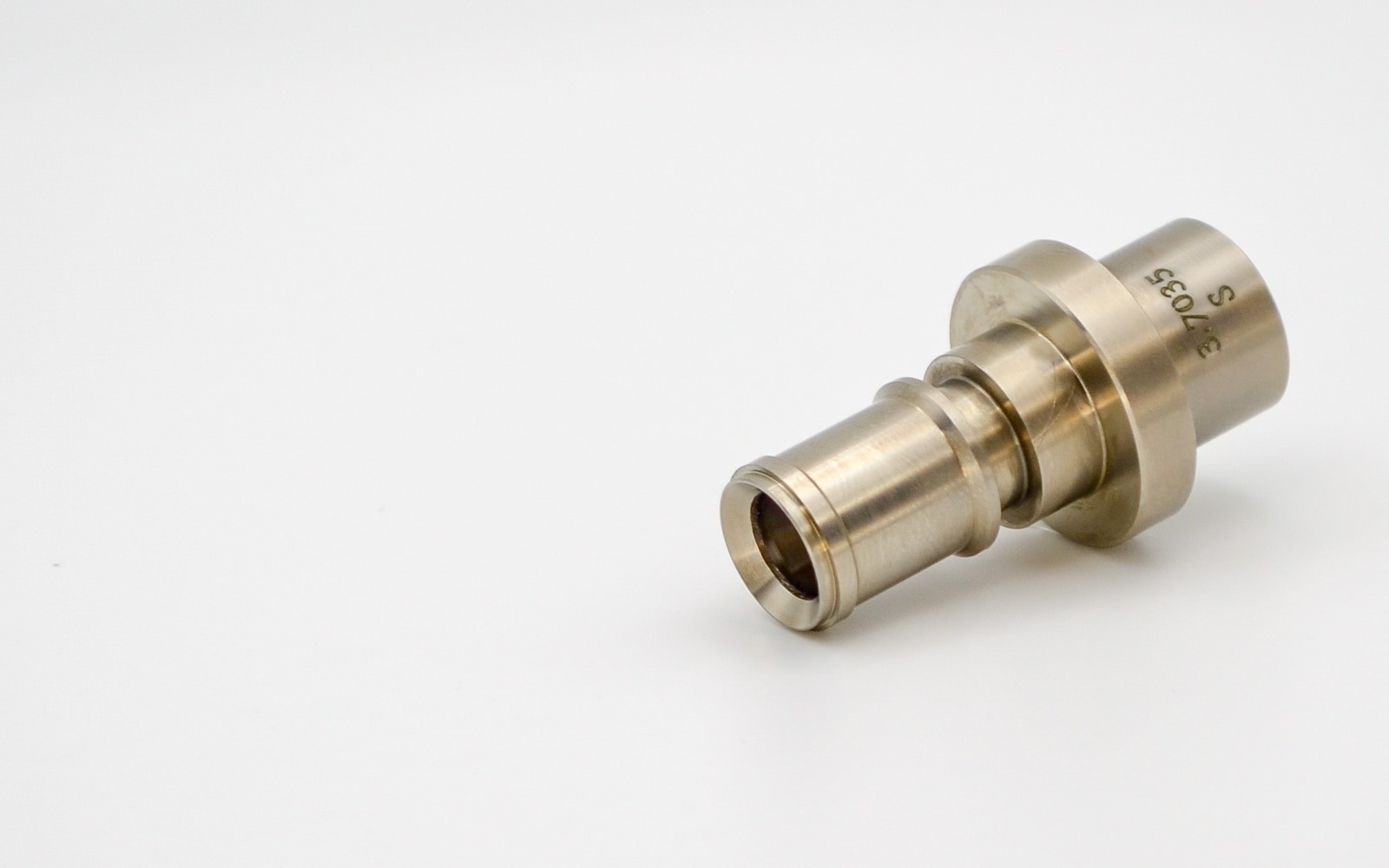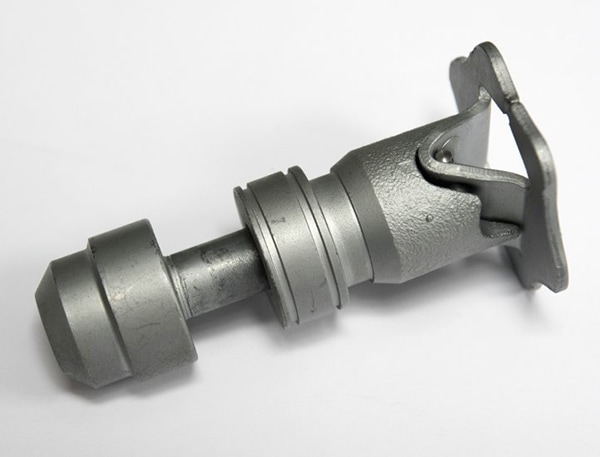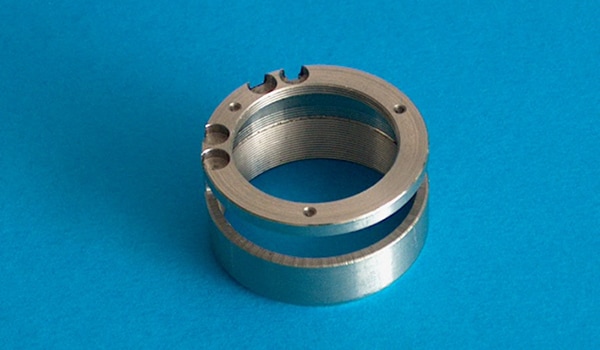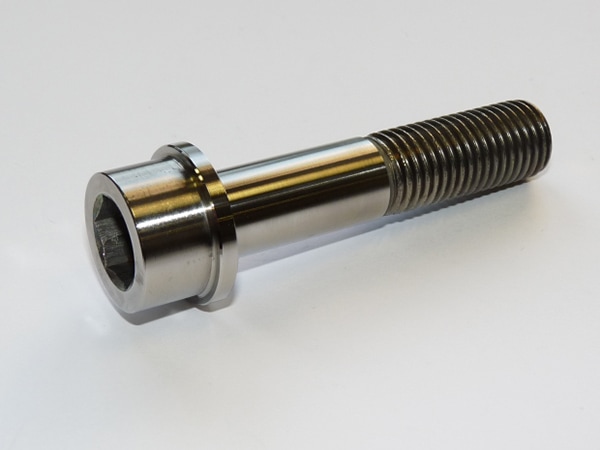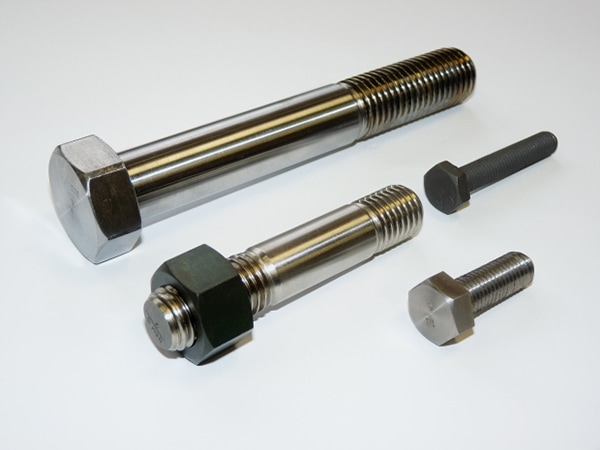TORLOPP GMBH
Titanium as a material for turning and milling
Titanium, the material from which we manufacture titanium screws and titanium turned parts, among other things, has an almost mysterious aura for many people.
“Stronger than steel” and “almost as light as aluminum” are the expectations that many have of titanium. And that’s often wrong. So let’s take a look at what titanium really is.
Titanium – light, stable and durable.
Titanium is difficult to produce, difficult to machine and correspondingly expensive. The complex, energy-intensive production process means that pure titanium is around 25 times more expensive than a high-quality steel alloy.
Titanium was therefore originally used almost exclusively in high-tech applications. Typical applications include aerospace, the defense industry, aviation, electroplating, medical technology, vehicle construction, racing and various extreme sports.
The unique properties of titanium have always been decisive for these applications: high tensile strength combined with low weight and outstanding corrosion resistance.
Titanium has a specific weight that is around 40 % lower than that of steel. At the same time, however, titanium is significantly heavier than aluminum, around 70 %.
The increased weight of titanium compared to aluminum is compensated for by its tensile strength and yield strength. It is much higher than that of aluminum and, depending on the alloy, can come close to high-strength steels. The common titanium alloy Ti-6Al-4V, for example, has a yield strength of around 900 N/mm², while steel alloys have yield strengths of over 1,500 N/mm². Aluminum alloys are typically around 250 N/mm², with the best ones reaching 500 N/mm².
Another important property of titanium is that it is antimagnetic and is therefore also suitable for environments in which eddy currents are present, for example.
Corrosion resistance and biocompatibility proved to be even more important in medical technology. Pure titanium and titanium alloys are being used more and more frequently. For example, as a joint replacement, as a fixation material, as a dental implant or as an artificial heart valve.
Typical titanium alloys: From soft to hard.
A frequently used titanium material has the designation Ti-6Al-4V (alloy with 6 % aluminum and 4 % vanadium), grade 5 according to the American ASTM standard. The material number is 3.7165 (or 3.7164 for aerospace applications). This alloy combines high strength with high toughness.
In contrast, Ti grade 2 (= 99.7 % pure titanium, material number 3.7035) is a fairly soft titanium material. Pure technical titanium is used in medical technology and implantology, for example, as it is particularly resistant to corrosion. It is also used in surface technology as it is highly resistant to alkalis, acids and seawater.
Other typical applications include heat exchanger components for use with seawater or brackish water, racks for electroplating, components in flue gas desulphurization plants and aerospace technology.
Corrosion protection through corrosion.
Some will be surprised that titanium is considered corrosion-resistant and yet oxidizes when exposed to air. A fresh surface is initially silvery and shiny, but changes color under the influence of oxygen to the gray tone typical of titanium. The resulting oxide layer has a high density, adheres very strongly and ensures that the metal has outstanding corrosion resistance to oxidizing media.
If the oxide layer is damaged, it quickly reforms when exposed to air. Turned parts made of titanium and titanium alloys are always protected by this process.
When is titanium the right material?
Titanium is more expensive than many other materials, so you should have good reasons for using it.
It is often used for precision turned parts as a substitute for stainless steel when higher strengths are required. For example, the wall thickness of components can be reduced while maintaining the same stability or, alternatively, the strength and rigidity of workpieces can be maximized while maintaining the same dimensions. This puts the higher price into perspective.
Titanium is also the material of choice wherever biomedical compatibility is crucial or where aggressive media are present. Titanium is often superior to stainless steels in medical technology, in the chemical industry or for systems in seawater.
Turning, milling or cutting titanium: Hard work that requires a lot of experience.
Compared to steel, many things are different when processing titanium. This starts with formability. While pure titanium can still be formed relatively well, this is hardly possible with some titanium alloys. When titanium materials are deformed, there is an increase in strength, known as work hardening, which is also observed in stainless steel.
This work hardening can be a hindrance during machining, for example when turning or milling titanium. If the friction is too high due to insufficient feed of the cutting edge, the onset of work hardening can cause the tool to quickly become blunt. Sharp tools, the right feed rate and ideal chip formation are therefore important parameters when turning and milling titanium. The hardness of the tools must also be appropriate to the hardness of the material.
The combination of titanium’s elasticity and tensile strength properties also makes it difficult to process. This can lead to “seizing” of the tool, especially when thread cutting. The fact that titanium is a long-chipping material and the chips tend to stick together further increases the risk. For high-quality titanium screws, threads are therefore preferably rolled. In this “thread rolling” process, the thread is produced under high pressure by cold forming.
Incidentally, titanium chips are highly flammable when dry. This is another reason why continuous cooling and lubrication with an oil-water mixture is required during machining. In addition, cooling prevents stresses in components that can arise due to excessive heat input during machining and which can impair the quality of the finished part.
The bottom line is that the cutting speeds for machining titanium are only around 30% of those for machining steel. This is another factor that makes titanium processing comparatively expensive.
The things we make from titanium.
Our production range in titanium includes titanium screws, titanium nuts, titanium standard parts, titanium washers, titanium bolts, titanium threaded bolts, titanium threaded pins, titanium threaded rods, titanium U-washers, titanium wing nuts, titanium hexagon cap nuts, titanium stud bolts, titanium split pins, titanium taper pins, titanium dowel pins, titanium construction parts, titanium special parts, titanium standard parts and much more.
We keep a large stock of DIN parts in Ti Gr2 from M4 to M20 for you. We also stock primary material in various dimensions so that we can deliver your order promptly. Put us to the test!
We also manufacture all titanium turned parts, titanium milled parts, titanium screws and special titanium parts according to your specifications, samples, drawings, design data or DIN.
Please note that we are unfortunately unable to supply small quantities to private customers, such as titanium screws for racing bikes, mountain bikes or motorcycles.
Our expertise, your advantage
Do you have any questions? We provide competent and comprehensive advice. Take us at our word:
Industrial technology advice: +49 (0)48 21 – 89 79-0
Measurement technology advice: +49 (0)48 21 – 89 79-79
You can also send us an e-mail – info@torlopp-gmbh.de – or use the contact form.

